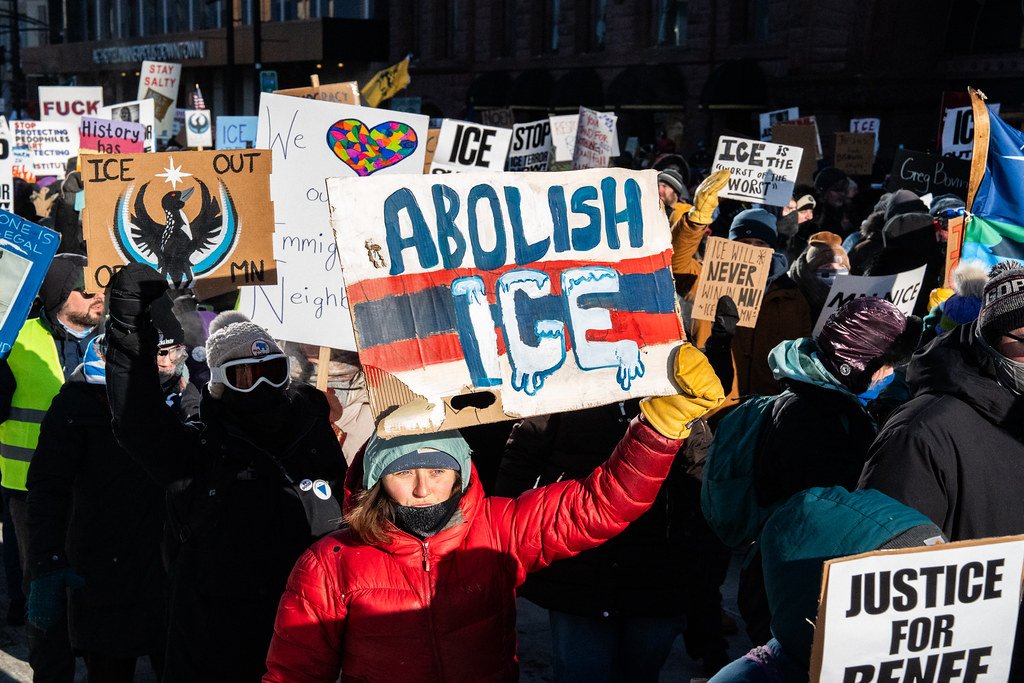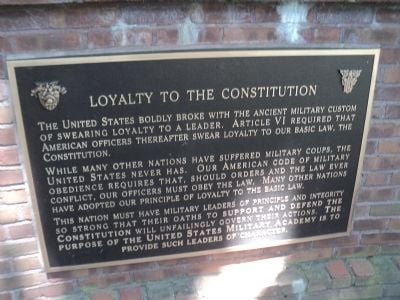Nationalism Canons
As connoisseurs of Schadenfreude, I'm sure we all look forward to that fateful day when a phalanx of Trump-appointed judges will confront a Democratic president and administration, like the Spartan immortals confronting the Persians at Thermopylae. What principles of law will be fashioned, or rather be "discovered," that heretofore lay hidden deep within the recesses of the original Constitution?
As connoisseurs of Schadenfreude, I'm sure we all look forward to that fateful day when a phalanx of Trump-appointed judges will confront a Democratic president and administration, like the Spartan immortals confronting the Persians at Thermopylae. What principles of law will be fashioned, or rather be "discovered," that heretofore lay hidden deep within the recesses of the original Constitution?
I speculate that one possible direction for the Trumpian judiciary will be to develop a series of nationalism canons. These will be principles and doctrines of constitutional and statutory interpretation and of administrative law that will aim to ensure that officials of the United States act strictly as representatives of Pittsburgh, not Paris.
What principles and doctrines might be included? A few speculations:
- At the level of large constitutional abstractions, courts will point to the Preamble to the Constitution, observing that it is enacted by and in the name of "the People of the United States," not anywhere else, and that it aims to promote the "general Welfare, and secure the Blessings of Liberty to ourselves and our posterity." This will be taken to provide background principles that inform the reading of all other constitutional and statutory texts, and that shape and constrain legislative and executive authority in an indefinite range of areas.
- In constitutional law, citation of foreign law as an aid to the interpretation of domestic constitutional provisions, such as the ban on cruel and unusual punishments, will be heavily disfavored or excluded altogether.
- In foreign relations law, courts will aim to ensure that it is at least as easy to exit international agreements of various kinds as it is to enter them. Presidential treaty-termination authority, for example, will be strongly reaffirmed.
- At the level of statutory interpretation, courts will adumbrate a super-strong clear statement rule against extraterritoriality, and will construe delegating statutes not to grant agencies any authority to act to promote the welfare of non-U.S. citizens as such, except perhaps as an incidental byproduct of action for the welfare of U.S. citizens.
- At the level of administrative law, courts will vigilantly police any rationales for presidential or agency action that seem to attach the same weight to the welfare of non-U.S. citizens as to the welfare of U.S. citizens. There will be subsidiary debates about whether the welfare of non-U.S. citizens may be given any positive value, or must be counted as zero. In this and other areas, there will be hard boundary cases about the weight that may be attached to the interests of U.S. noncitizen residents and other liminal categories.
- Presidential action and executive orders will be given a kind of strict scrutiny for pretext: statements by the President made during the campaign, or by campaign surrogates, that suggest a concern for the welfare of foreigners, may be used to impeach the stated domestic-regarding rationales for presidential action. (I recommend that Joe Biden and Mark Zuckerberg skip Davos until 2020, or at least have their talks vetted by the legal team).
- At the level of case law, certain precedents that previously enjoyed only B-list celebrity status, or that were dismissed as odd or puzzling, will suddenly find themselves walking the red carpet. All casebooks will prominently feature discussions of the ambiguous passages in Massachusetts v. EPA that might, on one reading, be taken to suggest that agencies have no business worrying about international regulatory efforts. The D.C. Circuit's pair of imported-mango cases (beginning with National Coalition Against the Misuse of Pesticides v. Thomas, 809 F.2d 875 (D.C. Cir. 1987)), requiring agencies to justify regulation in domestic terms, will become prominent; and so forth.
- In this legal culture, labels and narratives will emerge to summarize favored and disfavored attitudes. "Cosmopolitan" will be a quasi-legal term of opprobrium, somewhat akin to "discriminatory," and will often be paired with "invidious." One major episode that will be stamped as anti-canonical is the Obama Administration's decision to consider the global benefits of regulating carbon emissions, not just the domestic benefits.
Dystopian legal fiction? Or the shadow of our (national) future?


.png?sfvrsn=48e6afb0_5)


